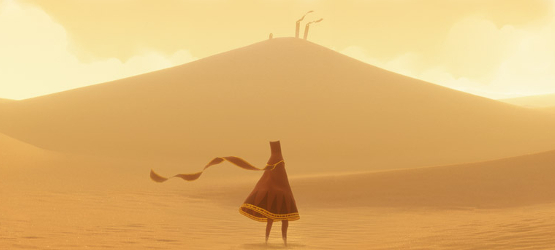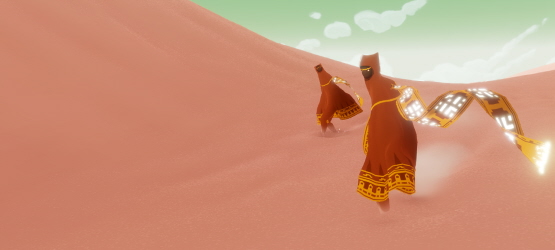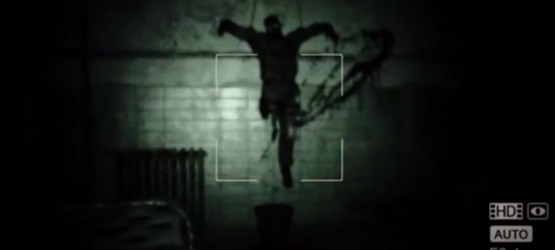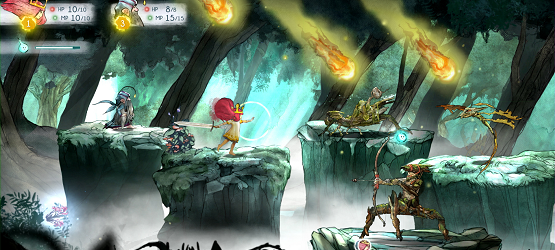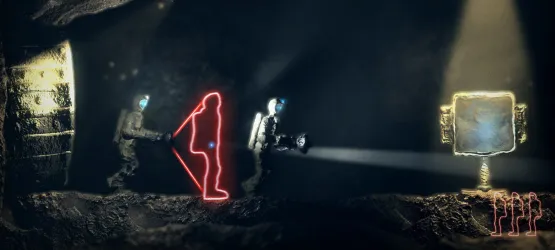Note that all opinions below are those of the author and do not necessarily reflect the views of PlayStation LifeStyle or its staff.
Why do Gamers Dislike Indie Games?
by Brian Mieszala
That is a question I often ask myself when I peruse the comment sections of gaming websites, forums, even listening to podcasts. And it never makes sense to me. What is the sometimes sheer hatred directed at a game just because it isn’t The Last of Us, or Destiny, or any AAA title? What is it about games like Rogue Legacy or Shovel Knight — fantastic games — ignored in favor of a more AAA game that came out around that time like, lets say, Transformers: Rise of the Dark Spark, which wasn’t very good?
The first step in possibly answering this question is to try and define an indie game. What exactly makes a game “indie?” Historically, it’s been a small, self-funded game made by a studio most people have never heard of, consisting of just a few people, and often dealing in subject matters or mechanics that most people have found to be boring or no longer relevant. Take a game like Gone Home — made by only a handful of people — where you do nothing except explore a house. There is no narrative guiding you along, no combat, no real intense moments. All you do is explore a house. And yet the magic in the game is made by the players themselves. They pick up a note, a journal, a notebook, photos, etc, and the story is told through that medium.
That is a classic definition of an indie game. However, there are so many variations now about what an indie game is. Double Fine is technically an indie studio. They have received funding for games from large publishers in the past, but have also made their own games through crowdfunding. Is Broken Age an indie game when it ended up with millions of dollars in money from backers? Or Star Citizen, which is up over $50 million? Obsidian launched a Kickstarter for its own game called Pillars of Eternity, and they are also the ones who just put out the excellent South Park: The Stick of Truth for Ubisoft. Is Journey considering an indie game, even though Sony is the publisher for it? How about Child of Light, a shorter game for a relatively small price made and published by Ubisoft? The point in all this is there is no concrete definition for indie anymore, but the definition most commonly used by people who dislike indie games is more in line with “SNES-looking, short game,” and clearly, as pointed out above, that is anything but the case.
Let’s look at Journey again. Similar to Gone Home, it has no real narrative. There is a loose story about a hooded figure making it to the mountain. The player is the one who directly interprets that story, especially if they are joined by others on that journey or if they play alone. It is a far cry from The Last of Us — a storytelling masterpiece — but the games are as similar as they are different. They evoked emotions and reactions, there might have been tears, and there was a sense of wonderment as you explored and noticed how beautiful the surroundings were. There were moments that left you wondering what happened, why did that happen, and ultimately left you to interpret those games in your own way. And, of course, they both won many Game of the Year awards.
A common complaint I see and hear with indies is how heavily PlayStation is courting indie devs for PlayStation platforms. I’ve heard the term “Indie-station” far too often, especially after major conferences like E3 or gamescom. PS4 and Vita in particular get most of that hate. So my question for you, the reader, is this: would you rather have zero releases in the three months between AAA games, or an average of at least one release every week in that same three month timespan? If you prefer the former, you are not a true gamer. We may not get those larger releases like we all want, we may not have a new God of War or inFAMOUS on our Vitas, but right now we can play Rogue Legacy and The Swapper. We will soon have Minecraft (yes, despite how huge that series is now, it is still an indie game), and then we will get the major releases like Tales of Hearts R and Freedom Wars. PS4 was similar, in that there were a ton of great games released for the system between inFAMOUS Second Son and Watch Dogs. It was another two months of great indie games until The Last of Us after that. So, you can either believe a system like Vita is dead, because you see no looming AAA, first party games next year, or you can be incredibly excited for the giant list of 150 or so games coming out for the system in the coming year or two.
Finally, I make one last point. The gaming landscape of today is drastically different than it was 10-20 years ago.. Back then, Sony and Naughty Dog made Crash. Activision was making Call of Duty to compete with Medal of Honor. We had to wait years to get that next JRPG from Japan. THQ was a bustling publisher making games like Summoner, and Acclaim and Midway were still important, making terrible South Park games and bringing Mortal Kombat games to consoles. PC games were still published by bigger studios, and were wholly different from console games. Middle tier publishers now are mostly gone, either left to die or kept afloat by those huge franchises that are still going, like Konami with the help of Metal Gear Solid.
Today, if indies didn’t exist, we would only have these AAA games occasionally come out, and it would be like the dark ages of mid 90s console gaming, where it might be months and months between releases. And if a game was bad — too bad, you still spent $40-50 on it. We live today in an age of $5-60 console games of different quality, length, fun factor, and any number of other variables. We have more choice; more freedom in what games we play. We don’t need a 50 hour JRPG anymore (although they are still great) when you can pick up a Vita, play 15-20 minutes of Rogue Legacy, accomplish something and walk away. We can have new experiences, like a simple and fun platformer like Sound Shapes that has endless replay ability with content created by fellow users. Or we can fly around in a plane in Los Santos and cause wanton destruction and mayhem. That choice is an amazing thing and a positive direction the industry as a whole is taking.
So, has any real question been answered? Has any ground really been covered here? Honestly, probably not. People who just want to hate on indies will probably continue doing so without caring. But hopefully, one person might now try something they’ve shunned in the past. Hopefully that one person can realize a world of indie like games published by Ubisoft, huge AAA games like Destiny, and a game like Papers, Please can coexist in a world where there is nothing but choice and freedom in what we play and how we can play it. And as long as many of these games that come out continue to be good, and the PlayStation store doesn’t turn into the garbage pile the Android or iOS stores have become, we should all be happy we are living through a true golden age of gaming. Now if you’ll excuse me, I’m going to go juggle Shovel Knight and Diablo III some more, while anxiously waiting for Velocity 2x and The Binding of Isaac.
The Soapbox is a PlayStation LifeStyle feature in which the community can have their voices heard. Last month we asked for your entries and received a lot of great pieces from you, enough that we decided to honor a runner up last week (Giovanni Q.) as well as selecting a winner for you this week. The decision was a tough one, but together, the PSLS staff has chosen the winners for this month’s Soapbox.
Congratulations to Brian Mieszala for writing the winning piece this month! Brian asks the question of why there is so much indie game hatred, and explores whether the dislike comes from surface appearances and not being AAA, or if there are more deeply rooted reasons. In addition to being an excellent topic to explore, Brian’s piece is well written as it challenges the rampant disregard some gamers have for indie games in favor of the AAA experience.
Keep an eye out soon for instructions on how to enter next month’s Soapbox competition.
